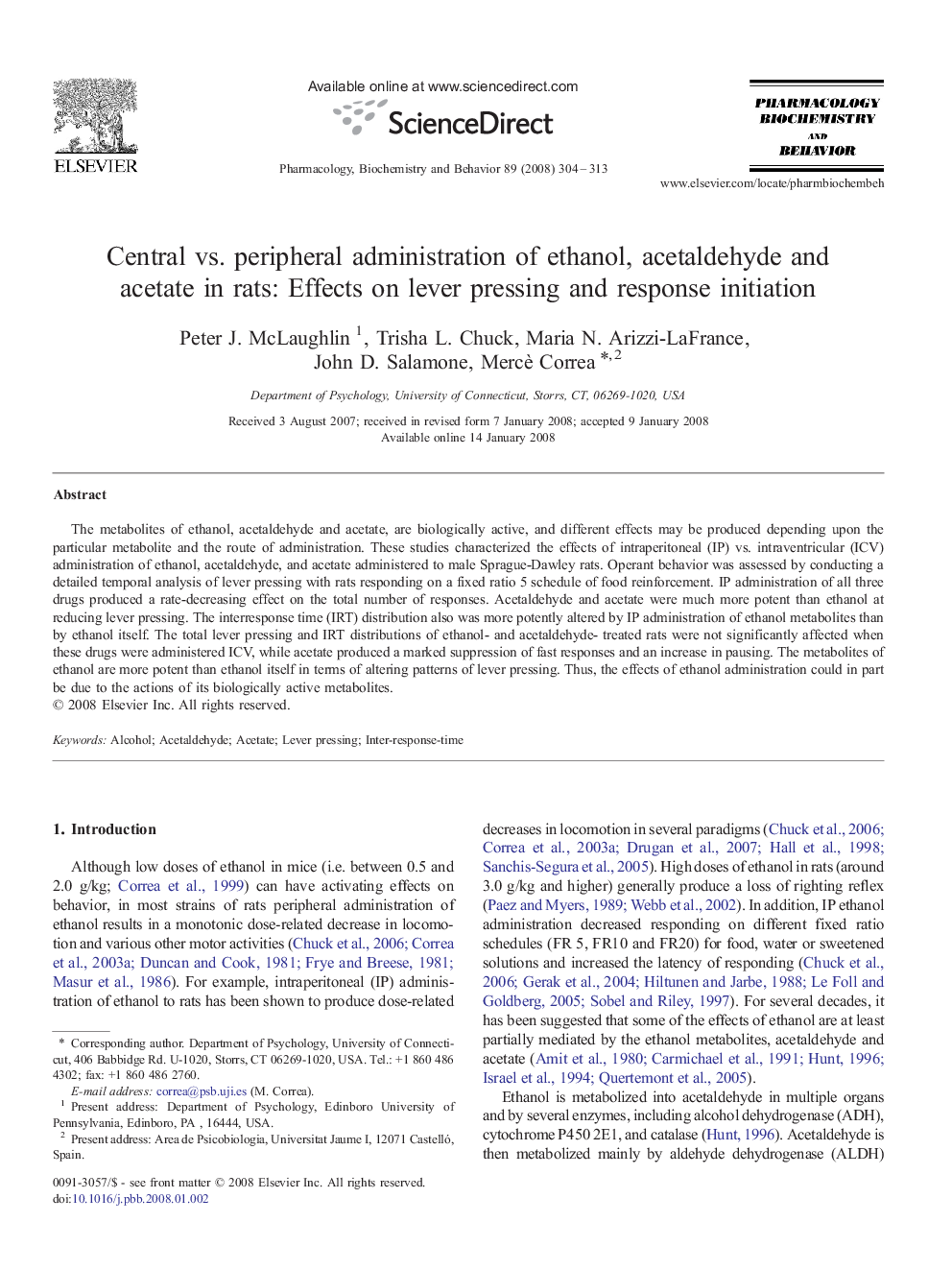| Article ID | Journal | Published Year | Pages | File Type |
|---|---|---|---|---|
| 2013849 | Pharmacology Biochemistry and Behavior | 2008 | 10 Pages |
The metabolites of ethanol, acetaldehyde and acetate, are biologically active, and different effects may be produced depending upon the particular metabolite and the route of administration. These studies characterized the effects of intraperitoneal (IP) vs. intraventricular (ICV) administration of ethanol, acetaldehyde, and acetate administered to male Sprague-Dawley rats. Operant behavior was assessed by conducting a detailed temporal analysis of lever pressing with rats responding on a fixed ratio 5 schedule of food reinforcement. IP administration of all three drugs produced a rate-decreasing effect on the total number of responses. Acetaldehyde and acetate were much more potent than ethanol at reducing lever pressing. The interresponse time (IRT) distribution also was more potently altered by IP administration of ethanol metabolites than by ethanol itself. The total lever pressing and IRT distributions of ethanol- and acetaldehyde- treated rats were not significantly affected when these drugs were administered ICV, while acetate produced a marked suppression of fast responses and an increase in pausing. The metabolites of ethanol are more potent than ethanol itself in terms of altering patterns of lever pressing. Thus, the effects of ethanol administration could in part be due to the actions of its biologically active metabolites.
